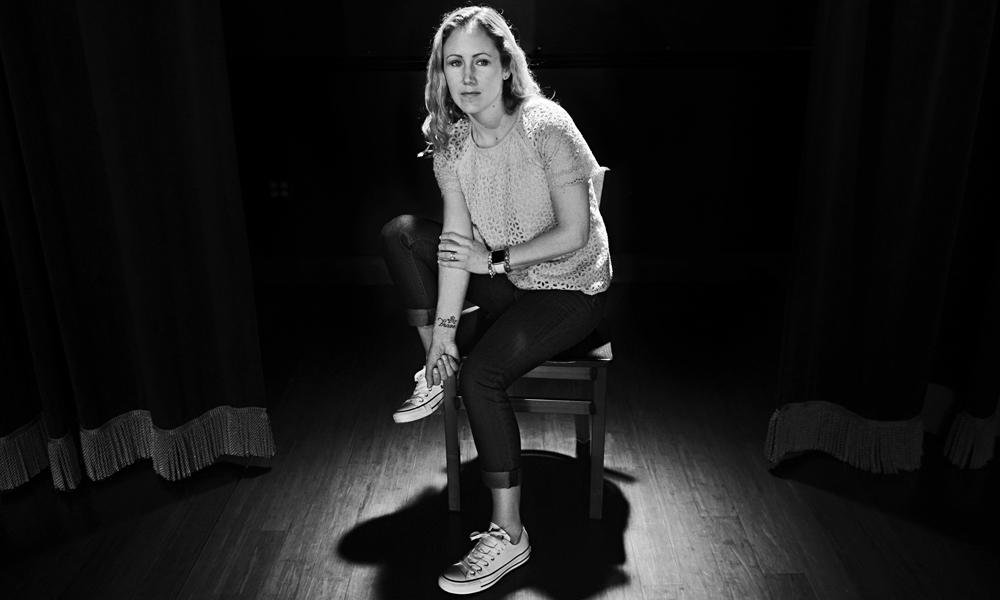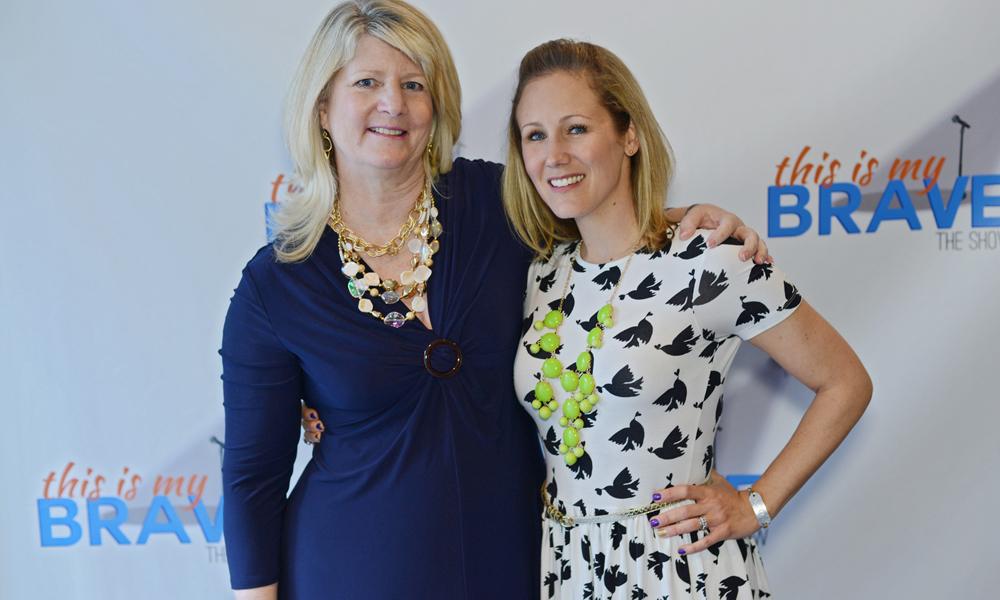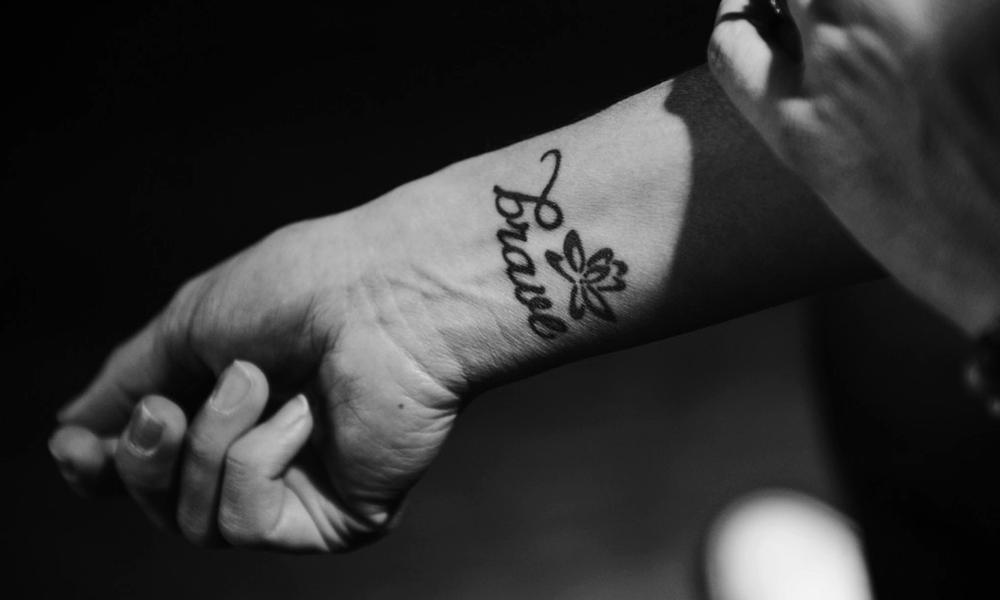Finding her brave
Health and Behavior
SUMMARY: Jennifer Killi Marshall ('01) says stories changed the course of her life. She's making sure that many others battling mental illness are benefiting from that same transformative experience.
from June 2017 digital Madison
In 2005, Jennifer Killi Marshall (’01) was enjoying a seemingly perfect life. In four short years the JMU marketing major had gone from rookie to the top-grossing recruiter at a Washington, D.C., recruitment agency for creative professionals. She was recently married, and she and her husband were building their first home.
“Then my illness emerged,” she says.
“When my husband returned from a business trip, he immediately knew something was wrong,” Marshall says. Her symptoms—racing thoughts, talking fast, outrageous energy, delusions—were signs of a full-blown manic episode.
At the time, Marshall, who had no previous history of mental illness, was advised that the episode was most probably a singular event, the result of stress and a week without sleep. Unfortunately, two weeks later on Christmas Day she was back in the hospital.
She began a new enterprise: learning to deal with a bipolar disorder. Despite the challenges of balancing psychiatrist and therapist appointments, finding the right medications, understanding the triggers that could lead to further episodes, and, in total, experiencing four hospitalizations in five years, Marshall counts herself lucky.
|
'Mental illnesses deserve to be treated just like any physical illness.' — Jennifer Marshall ('01) |
Truthfully, though, Marshall made her own luck, and it was not without struggle.
Like many people with mental illness, Marshall had to accept the fact of a lifelong health condition that “historically had been kept in the shadows.” She felt burdened by the stigma of the disease and spent years hiding her mental illness.
While her parents and husband did everything they could to help Marshall get well, ultimately, and surprisingly, it was strangers who had a large impact on her recovery. “I found stories on the internet written by people who had made successful lives despite mental illness. They inspired me,” she says. The inspiration moved her to pen her own story. Marshall began writing anonymously, creating the BipolarMomLife blog.
Family, friends, even psychiatrists recommended she remain anonymous to avoid the discrimination that comes with a mental illness label.
That changed when she was approached to contribute her experience to the What to Expect book series. “It brought me out of hiding,” she says. “I wanted to stand up to stigma,” she says, “… and an incredible thing happened.” Marshall’s courage to write using her real name was met with a huge outpouring of support. People sent her letters to thank her for being brave, and they shared their personal stories of struggling with mental illness. It proved to be a catalyst for Marshall. “I wanted to give others the same opportunity I had—a platform to share their story.”
 |
| Marshall (right) with This Is My Brave co-founder Anne Marie Ames. Photo courtesy of This Is My Brave. |
“I had an idea to do a show in a theater where people would stand up on stage and share their stories of dealing with mental illness through essays, poetry and music,” she says. She met Anne Marie Ames who shared her passion for mental health awareness. Together they launched This is My Brave on Kickstarter and were successfully funded in 31 days, raising over $10,000.
“We publicized auditions and cast the show with 13 brave storytellers,” she says. The first show in Arlington, Virginia, sold out, received rave reviews and prompted the team to expand their reach. In 2015, the show was performed in six cities; in 2016, nine cities; and this year shows are scheduled in 20 cities, including a performance in Australia.
The organization has experienced a groundswell of support and plenty of attention. “We were featured in a front-page article in The Washington Post and a four-page article in O, The Oprah Magazine,” says Marshall.
“Using artistic expression to heal from mental health issues is something we’ve found to be empowering for our storytellers and eye-opening to our audiences,” she says. “I’ve seen a shift; more and more people are coming forward to talk openly. That’s how we’ll move the needle in terms of attitudes in our culture toward mental illness.” The change is needed. According to the National Alliance on Mental Illness, one in five adults in the U.S. will experience mental illness in a given year.
Marshall says education is key in dealing with mental illness, for the patient and for family and friends. “Mental illnesses deserve to be treated just like any physical illness,” she says. “Our brains get sick the same way other parts of our bodies get sick.”
As so often happens in the Madison community, Dukes connect in their efforts to make a difference in the world. “One of our board members is a fellow Duke—Ryan Eppehimer. He and I have been friends ever since COB 300 brought us together as colleagues. He has been helping us with strategic planning and growth initiatives.”
 |
| Marshall says talking openly about mental illness will shift cultural attitudes in a positive direction. Photographed for The Washington Post by Amanda Voisard. |
Marshall says stories changed the course of her life. Thanks to This Is My Brave many others are benefiting from that same transformative experience.
Visit thisismybrave.org for resources, videos, performance schedules, audition information and opportunities to donate to the cause.
